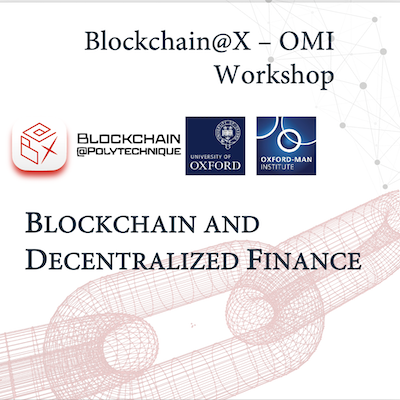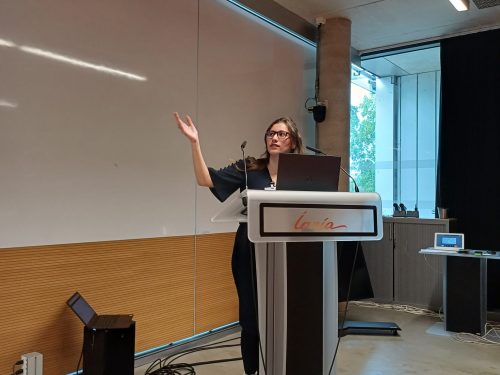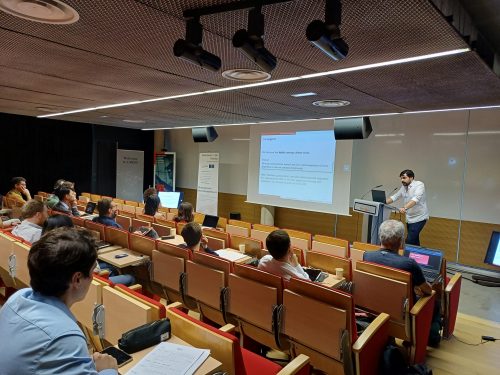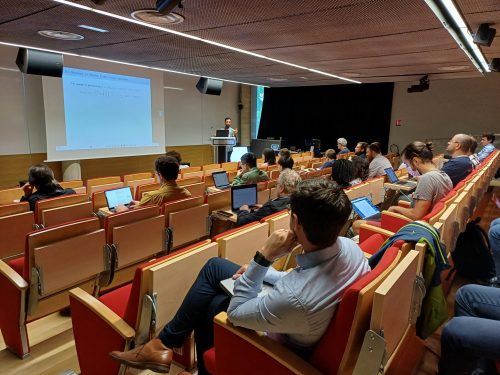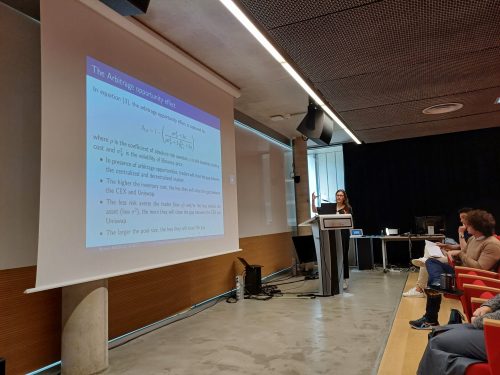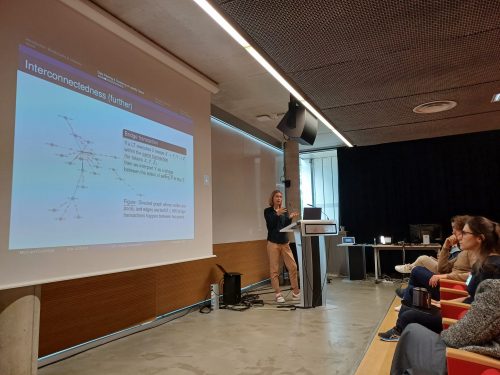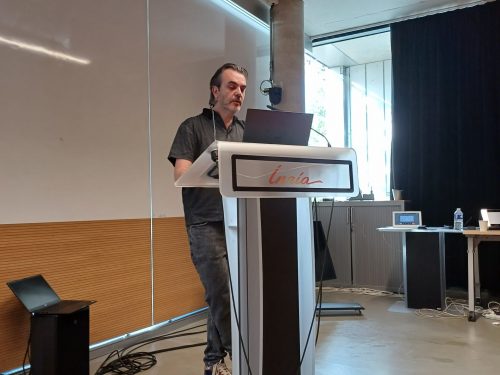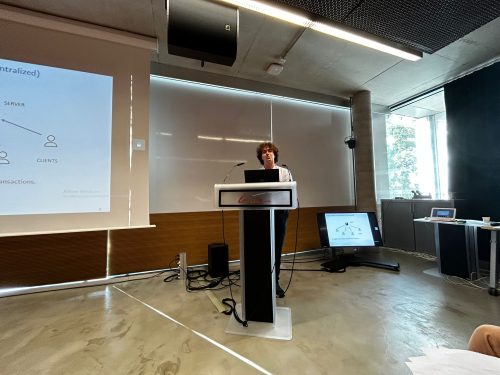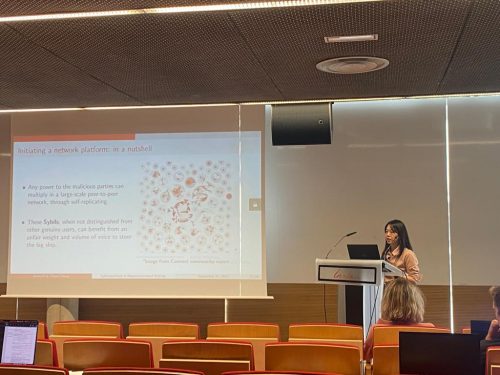The Blockchain@X-OMI Workshop on Blockchain and Decentralized Finance (DeFi) was held on September 21-22 2023 at the Alan Turing building at INRIA on the École Polytechnique campus.
A gathering of multidisciplinary minds
The workshop brought together 22 scholars from a variety of backgrounds, such as economics, computer science, and mathematics, who presented their working papers. The academic presentations were complemented by three industrial talks delivered by blockchain innovators of the private sector.
The workshop highlighted the importance of a multidisciplinary approach to its central topic: As experts from various fields discussed similar issues but from different angles, the combination of their insights improved everyone’s understanding. From the talks of blockchain innovators such as Kamea Labs, StarkWare, and Giza, the workshop also made evident that blockchain and DeFi research has a large potential for experimentation in the private sector.
Towards a better understanding of blockchain and decentralized finance ecosystems
The presentations were sectioned into six sessions with strong interlinks to the central theme of blockchain and decentralized finance (DeFi). On the first day, the workshop dived into topics concerning distributed consensus and the game theory of information aggregation in distributed systems. The successive session, on the financial analysis of Automated Market Makers (AMMs), received valuable discussions on how to employ stochastic optimal control tools to devise trading, liquidity provision, and risk prediction strategies in a Constant Product Market Maker (CPMM). The afternoon’s presentations shifted the focus towards the network security of DeFi protocols. Presenters identified existing attacks that weaken governance in DeFi ecosystems and devised machine learning and artificial intelligence solutions to mitigate them.
The second day started with an empirical network analysis of Decentralized Finance (DeFi) protocols. One presenter graphically analysed DeFi marketplaces to explain trading behaviours. Another presenter with a Physics background assessed the health of these new markets using an interesting analogy the ideal thermal law. In the afternoon, the workshop delved into AMM design, featuring six papers that pointed out the exploitable vulnerabilities of AMMs to liquidity providers in the face of swap fees and adversarial liquidation. Some papers shed light on alternative trading protocols by introducing external pricing oracles, looking beyond the CFMM formula, and using batch trading. The topic shifted more to the AMM ecosystem improvements, mixed with also a historical look into the distributed system refinements that moulded blockchains today.
The first event co-organized by Blockchain@X Research Centre (École Polytechnique) and Oxford-Man Institute of Quantitative Finance (University of Oxford)
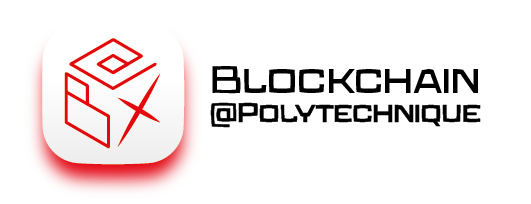
Blockchain@X Research Centre and Oxford-Man Institute of Quantitative Finance crossed paths in examining the financial market structure unprecedentedly facilitated by blockchain technologies. The Blockchain@X chair is directed by Professor Julien Prat (CNRS & CREST, École Polytechnique, IP Paris) and Professor Daniel Augot (Inria Saclay & École Polytechnique, IP Paris). The chair bridges economics and computer science to broadly identify challenges in the blockchain today. This diversity of its researchers’ expertise was reflected in the presentations given by the team, ranging from mechanism design and macro-foundations of utility tokens, to econometric and graph data-driven analysis of DeFi protocols.
Carrying a similar vision, at the Oxford-Man Institute (OMI), led by Professor Álvaro Cartea (University of Oxford), has the mission of addressing fundamental problems in quantitative finance. In particular, the participating speakers covered DeFi topics with a strong focus on the ecosystems of liquidity pools and financial decision-making in these new trading venues.
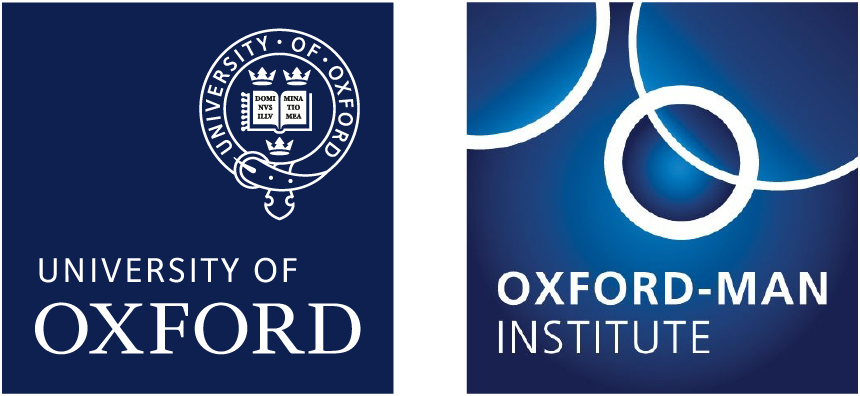
The Blockchain@X-OMI collaboration aimed at attracting academics and industrial partners to advance this emerging field of blockchain through research and application in Europe. Blockchain is a fast-evolving industry that has been absorbing endeavours from various studies that continuously inspect and propose implementations for improving performances. To synchronise the outputs from the university labs and the industry, this workshop served as an exchange channel to broadcast peoples’ work and incubate future collaborations.

